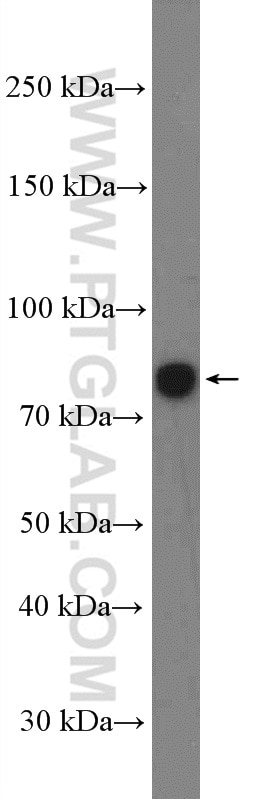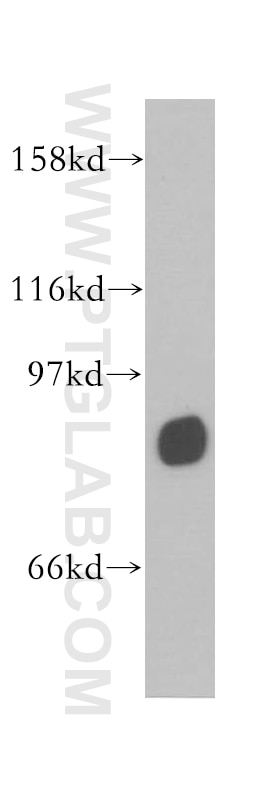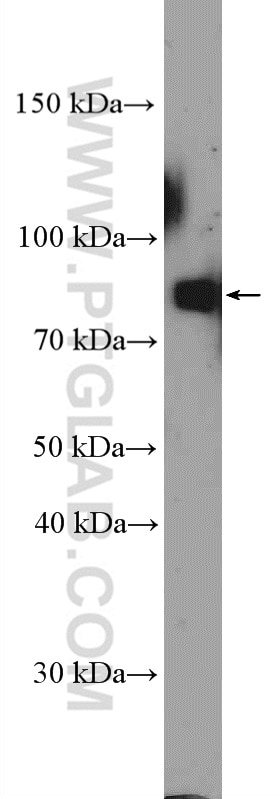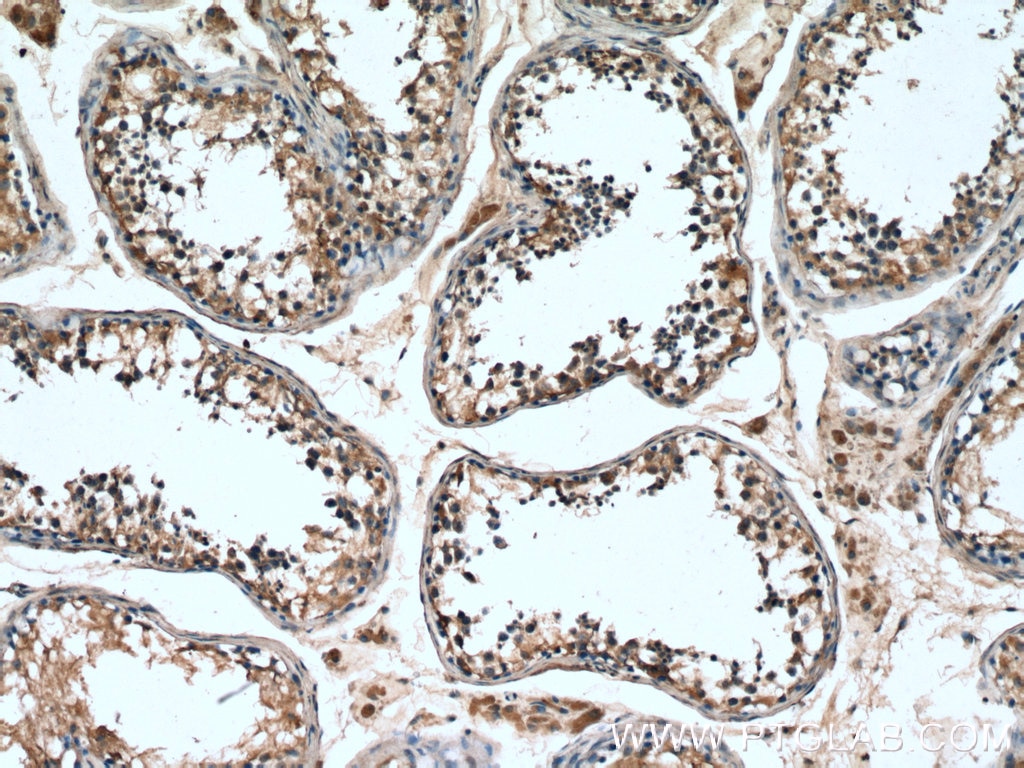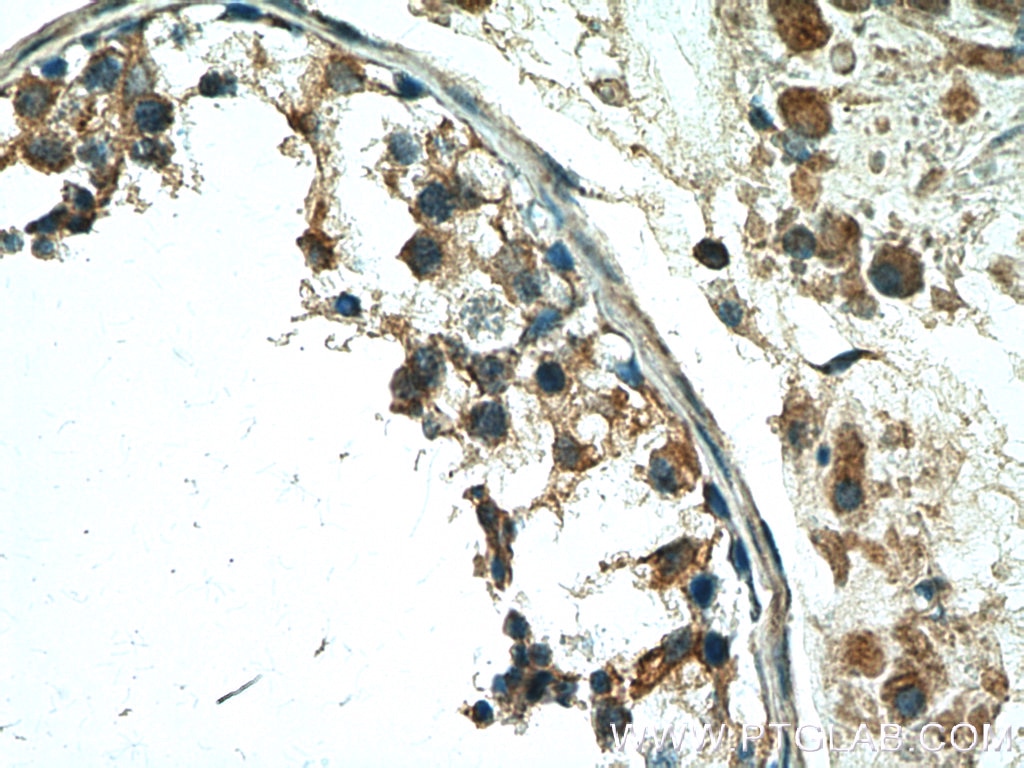Validation Data Gallery
Tested Applications
| Positive WB detected in | rat testis tissue, mouse testis tissue |
| Positive IHC detected in | human testis tissue Note: suggested antigen retrieval with TE buffer pH 9.0; (*) Alternatively, antigen retrieval may be performed with citrate buffer pH 6.0 |
Recommended dilution
| Application | Dilution |
|---|---|
| Western Blot (WB) | WB : 1:1000-1:6000 |
| Immunohistochemistry (IHC) | IHC : 1:50-1:500 |
| It is recommended that this reagent should be titrated in each testing system to obtain optimal results. | |
| Sample-dependent, Check data in validation data gallery. | |
Published Applications
| WB | See 6 publications below |
| IHC | See 2 publications below |
| IF | See 3 publications below |
Product Information
12593-1-AP targets TSGA10 in WB, IF, IHC, ELISA applications and shows reactivity with human, mouse, rat samples.
| Tested Reactivity | human, mouse, rat |
| Cited Reactivity | human, mouse |
| Host / Isotype | Rabbit / IgG |
| Class | Polyclonal |
| Type | Antibody |
| Immunogen | TSGA10 fusion protein Ag3311 相同性解析による交差性が予測される生物種 |
| Full Name | testis specific, 10 |
| Calculated molecular weight | 698 aa, 81 kDa |
| Observed molecular weight | 81 kDa |
| GenBank accession number | BC028366 |
| Gene Symbol | TSGA10 |
| Gene ID (NCBI) | 80705 |
| RRID | AB_2240967 |
| Conjugate | Unconjugated |
| Form | Liquid |
| Purification Method | Antigen affinity purification |
| UNIPROT ID | Q9BZW7 |
| Storage Buffer | PBS with 0.02% sodium azide and 50% glycerol , pH 7.3 |
| Storage Conditions | Store at -20°C. Stable for one year after shipment. Aliquoting is unnecessary for -20oC storage. |
Protocols
| Product Specific Protocols | |
|---|---|
| WB protocol for TSGA10 antibody 12593-1-AP | Download protocol |
| IHC protocol for TSGA10 antibody 12593-1-AP | Download protocol |
| Standard Protocols | |
|---|---|
| Click here to view our Standard Protocols |
Publications
| Species | Application | Title |
|---|---|---|
J Assist Reprod Genet Pathogenesis of acephalic spermatozoa syndrome caused by splicing mutation and de novo deletion in TSGA10. | ||
Basic Clin Androl A novel homozygous TSGA10 missense variant causes acephalic spermatozoa syndrome in a Pakistani family |
